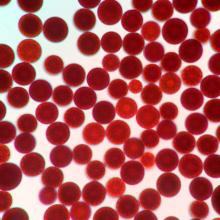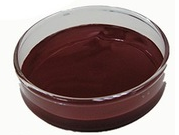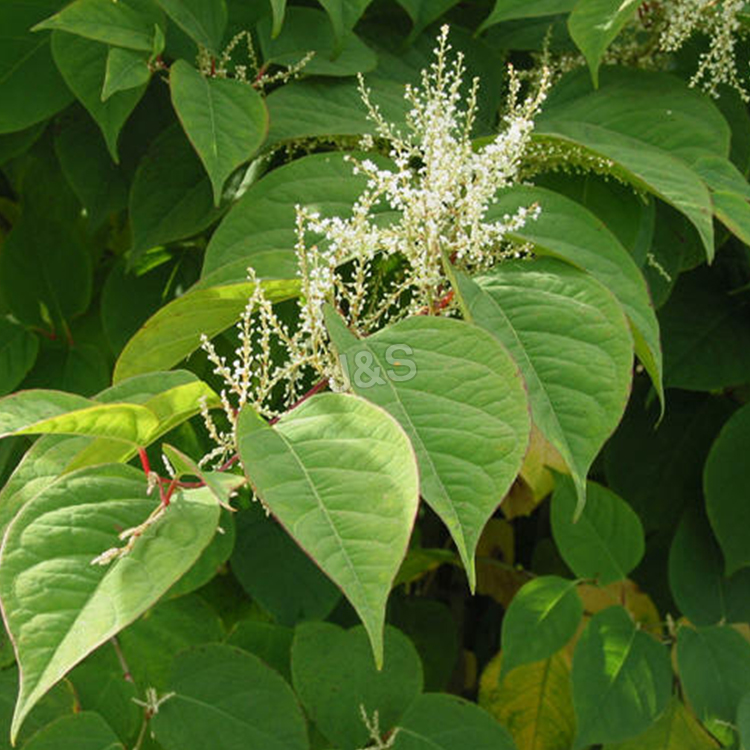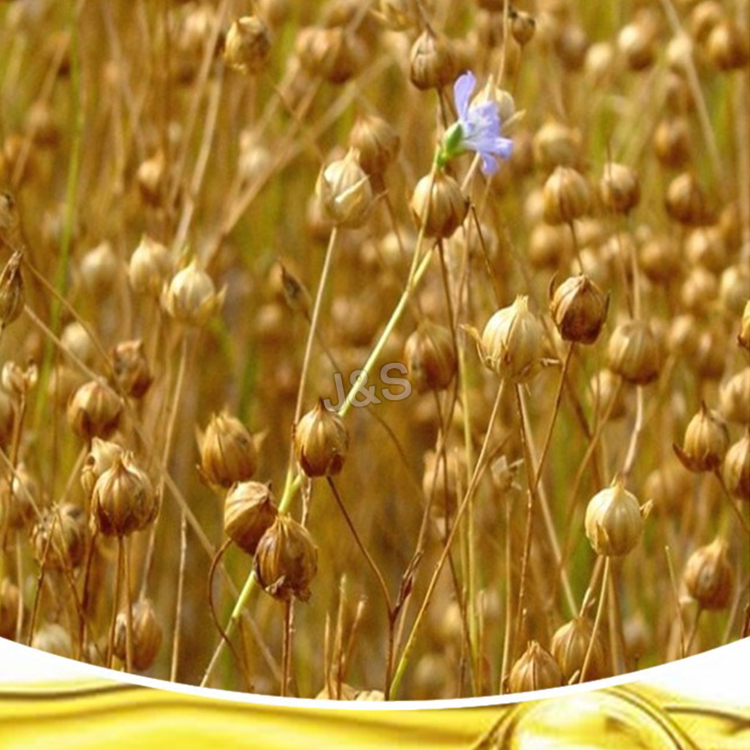Rapid Delivery for Astaxanthin Factory from Zimbabwe
Rapid Delivery for Astaxanthin Factory from Zimbabwe Detail:
[Latin Name] Haematococcus Pluvialis
[Plant Source] from China
[Specifications]1% 2% 3% 5%
[Appearance] Dark red Powder
[Particle size] 80 Mesh
[Loss on drying] ≤5.0%
[Heavy Metal] ≤10PPM
[Storage] Store in cool & dry area, keep away from the direct light and heat.
[Shelf life] 24 Months
[Package] Packed in paper-drums and two plastic-bags inside.
[Net weight] 25kgs/drum
Brief Introduction
Astaxanthin is a natural nutritional component, it can be found as a food supplement. The supplement is intended for human, animal, and aquaculture consumption.
Astaxanthin is a carotenoid. It belongs to a larger class of phytochemicals known as terpenes, which are built from five carbon precursors; isopentenyl diphosphate and dimethylallyl diphosphate . Astaxanthin is classified as a xanthophyll (originally derived from a word meaning “yellow leaves” since yellow plant leaf pigments were the first recognized of the xanthophyll family of carotenoids), but currently employed to describe carotenoid compounds that have oxygen-containing moities, hydroxyl or ketone , such as zeaxanthin and canthaxanthin. Indeed, astaxanthin is a metabolite of zeaxanthin and/or canthaxanthin, containing both hydroxyl and ketone functional groups. Like many carotenoids, astaxanthin is a colorful, lipid-soluble pigment. This colour is due to the extended chain of conjugated (alternating double and single) double bonds at the centre of the compound. This chain of conjugated double bonds is also responsible for the antioxidant function of astaxanthin (as well as other carotenoids) as it results in a region of decentralized electrons that can be donated to reduce a reactive oxidizing molecule.
Function:
1.Astaxanthin is a powerful antioxidant and may protect against oxidative damage to body tissues.
2.Astaxanthin can improve the immune response by increasing the number of antibody producing cells.
3.Astaxanthin is a potential candidate to treat neurodegenerative disease such as Alzhimer and Parkinson diease.
4.Astaxanthin dan reduce UVA-light damage to skin such as sunburn, inflammation, ageing and skin cancer.
Application
1.When applied in pharmaceutical field, astaxanthin powder has the good function of antineoplastic;
2.When applied in health food field, astaxanthin powder is used as food additives for pigment and health care;
3.When applied in cosmetic field, astaxanthin powder has the good function of antioxidant and anti-aging;
4.When applied in animal feeds field, astaxanthin powder is used as animal feed additive to impart coloration, including farm-raised salmon and egg yolks.
Product detail pictures:

Related Product Guide:
As for competitive selling prices, we believe that you will be searching far and wide for anything that can beat us. We will state with absolute certainty that for such excellent at such charges we are the lowest around for Rapid Delivery for Astaxanthin Factory from Zimbabwe , The product will supply to all over the world, such as: Czech Republic, Mumbai, California, Our products are produced with the best raw materials. Every moment, we constantly improve the production programme. In order to ensure better quality and service, we have been focusing on the production process. We have got high praise by partner. We are looking forward to establishing business relationship with you.
https://surfbums.amazonherb.net/ProductPageN.aspx?ItemCode=ITChocamaca
Pure, Organic Cacao from the Rainforest
Through nutritional analysis, we are learning and naming over 300 chemical compounds at play in cacao. We are exploring their psychochemical effects on us — our central nervous systems, our bodies, minds and moods.
Antioxidant Rich:
Cocoa beans are rich in specific antioxidants such as catechins and epicatechins, the antioxidants found in green tea, as well as flavonoids, proanthocyanidins and polyphenols, the antioxidants found in red wine and grape seeds.
A Healthy Cardiovascular System:
Many studies published in the past few years have revealed the health-promoting properties of cacao, especially on the cardiovascular system. One study concluded that cocoa powder and dark chocolate favorably affect cardiovascular disease risk status by modestly reducing LDL oxidation susceptibility, and increasing serum total antioxidant capacity and HDL-cholesterol concentrations.
Improved Concentration and Mood:
Take pure dark chocolate to increase concentration and elevate mood. Cacao is also a unique source of the biogenic amine phenylethylamine (PEA). PEA is known as the molecule of love. When taken orally, it increases attention and concentration, and elevates mood.
Organic Chocolate Infused with 11 Powerful Rainforest Botanicals
Chocamaca is more than a great-tasting, healthy chocolate. It contains 11 other unique ingredients to provide your body with an enjoyable source of concentrated nutrients from wild, whole foods. These powerful botanicals provide energy, boost your immune system, support a healthy heart and so much more. Here’s what else you’ll find in each delicious ball of Chocamaca:
Kiwicha — promotes good cardiovascular health*
Maca — supports energy*
Muira Puama — supports nervous system*
Suma — supports hormonal balance*
Camu Camu — provides high concentration of natural vitamin C*
Blue-Green Algae — helps boost your immune system*
Catuaba — supports increased libido*
Jatoba — supports endurance and overall strength*
Fucus — helps stimulate lymphatic circulation*
Bitter Orange — an aid to soothing stomach disturbances*
Canela — provides invigoration*
Low in Calories and Fat
Compared to other chocolates and candy, Chocamaca is low in calories and fat. If chocolate has a bad reputation as far as health is concerned, it is strictly because of the refined white sugar commercial chocolate contains. Otherwise, pure cacao is a rich source of antioxidants which support a healthy heart, help reduce harmful cholesterol and boost the immune system. Add 11 nutritious herbs, and you have a deliciously healthy treat!
Amazon Herb Company’s Chocamaca goes a big step further in rejoining chocolate with traditional herbs and grains from its original bioregion, then molding them into small spheres reminiscent of Tibetan herb balls.
What is it about chocolate that would make 50% of women reportedly claim to prefer chocolate to sex?
Yes, most chocolate contains some sugar. But chocolate clearly delivers far more than a brief sugar high. Remove the refined white sugar and we move closer to the bitter herb of its origin.
What is it we love so much in chocolate?
Could it be chocolate’s tryptophan, the essential amino acid that enhances serotonin function, hence diminishing anxiety? Theobromine may be the Aztecs’ agent against mental stupor. Or perhaps chocolate’s key to our hearts is its phenylethylamine (PEA) content. Phenylethylamine, commonly called the “love molecule,” is a natural chemical suspected of causing the euphoria experienced by lovers.
PEA’s presence in wild blue-green algae, another ingredient in Chocamaca, may explain the increased energy, enhanced mental clarity and pervasive upbeat optimism experienced by algae eaters.
Ingredients: Organic chocolate (whole, unrefined evaporated cane juice, chocolate liquor, unrefined cocoa butter, vanilla beans), Maca, Jatoba, Blue-Green Algae, Marine Fucus, Camu Camu, Bitter Orange, Suma, Catuaba, Muira Puama, Canela, Kiwicha (non-GMO soy lecithin as an emulsifier).
We offer a wide selection of male enhancement pills.
Experience enhanced sex drive, intense orgasms, multiple, big, hard and long lasting erections.
Our all natural male enhancement supplement with unique herbal blend is designed for peak male performance.
Our ingredients are chosen for their ability to increase blood flow to the penis and to strengthen and fortify the erection’s staying power
Visit our website to order yours:
https://jpsnoveltygifts.com/male-enhancement-pills/
Male enhancement pills
Natural enhancement pills
enhances sex drive
intense orgasms
increased sex drive
longer and harder erections
natural male enhancement pills
The product manager is a very hot and professional person, we have a pleasant conversation, and finally we reached a consensus agreement.







